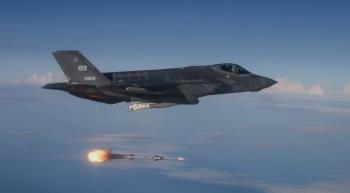Alwaght- Following abduction of 18 Turkish workers in Baghdad’s Sadr District on September 2, and the Iraqi army‘s 52th brigade attack on Iraq’s Hezbollah Brigade headquarters in Baghdad, attacks on Iraqi Public Mobilization Forces (PMF) were intensified.
As the pressures kept growing, Humam Hamoudi, the member of the United Iraqi Alliance, declared on September 8 that the parliament had withdrawn a plan to vote on enactment of the National Guard Law, a legal decision that distanced the popular forces known as Public Mobilization Forces from the risk of disbandment. Meanwhile, on September 12, a video went viral in which 5 masked men in black and armed with gun, had lined 18 abducted Turkish workers in front of them. The banner behind them read “death squads” and “Labbaik Ya Hussain”, a landmark slogan of Shiite Muslims.
Read by one of the abducted workers, the statement has called on Turkish authorities to arrange for their freedom, requesting Turkish government to concede to the conditions of the kidnappers to secure the workers' liberty.
The abductors’ called on Turkish government:
- To halt its oil imports from Iraq’s Kurdistan region, as well as block Kurdistan’s oil coming into the Turkish territories.
- To end support for Jaish al-Fatah, a terrorist group fighting the Syrian government in Syria, to stop attacks on Syria’s al-Foaa, Nobol, al-Zahra and Kfaria regions, and not to hinder protection of the Shiite groups in Aleppo and Idlib, two cities largely controlled by ISIS terrorist group as well as other anti-Shiite armed groups.
- To withdraw Turkish forces from Iraqi territories.
The statement also warned that in case the Turkish President Recep Tayyip Erdogan and his party, Justice and Development, would not accept the demands, the Turkey’s interests thoroughly, and its intelligence forces inside Iraq would be exposed to tense attacks. In another part, the statement also insisted that all of the conditions should be precisely met by the Turkish government.
What’s next?
A more comprehensive analysis, based on September 2-5 events could be reached:
-The content of the video aired by the abductors of the Turkish workers shows that the abduction operation has been carried out very unprofessionally, and it is very unlikely to be done by any groups within the Public Mobilization Forces’ body, especially the experienced Iraq’s Hezbollah.
- The Turkish workers' kidnapping and storming the Iraq’s Hezbollah Brigades’ headquarters happened just one day after Hadi Al-Amiri, the former Iraqi Minister of Transportation and head of Badr Organization, and Abu Mahdi al-Muhandi, the coordinator of the Iraqi Hezbollah Brigades have met with the Medhat al-Mahmoud, the head of the Iraqi Supreme Judicial Council. The retention of al-Mahmoud in his post played a major protective factor in deterring the opponents of Nouri al-Maliki who intended avenging him.
-The rhetoric of a specific political movement in Iraq indicated that there was an effort to relate the kidnapping and recent public demonstrations to PMF, to portray it as a disturbing factor against reforms demanded by protestors. The same theory is applicable on the Turkish Workers’ kidnap case, which was exploited to hold Iraq’s Hezbollah Brigade as accountable.
- It seems that a particular political spectrum inside the Iraqi parliament has set to decrease Public Mobilization Forces’ influence and isolate this remarkably powerful popular organization, an intention clarified further by considering enactment of the National Guard Law in the parliament, and in case it fails to pass, its draft would be occasionally on the agenda of its renders, with the purpose of creating a balance of power with the Public Mobilization Forces.


























